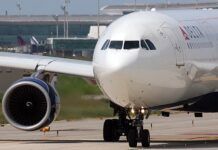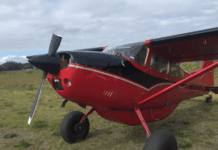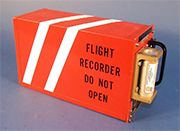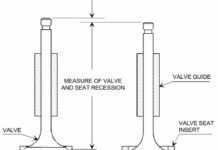Every year about this time, I teach a class at my local state college, and it reminds me that our nation’s young people are living in a different world than the one I know (and probably many of you AVweb readers out there). I realized a year or two ago that the students didn’t really get it when I mentioned how things have changed since 9/11, because they don’t really remember a time before 9/11… most of them were under 8 years old on that day. Neil Armstrong’s moon walk is history to them, not a memory, and most of them have only a vague idea about the last century’s multiple wars.Many of us older folks don’t realize how much our own world has changed in just a few decades unless we stop and think about it… how people used to smoke everywhere, even on airplanes; how it was normal (and perfectly legal) for factories to dump toxic waste into the nearest waterway; how it used to be standard procedure to throw trash out of car windows (cars with no seat belts or airbags); how the threat of seemingly inevitable nuclear war hung over our heads, and how it was taken for granted that men flew the airplanes and all flight attendants were women.It’s interesting to consider that kind of recent history, because it shows us that things can change, and they can change profoundly and quickly, and sometimes things even change for the better. It also reminds us how change often occurs in unexpected ways, and most of what we predicted in the past or even what seemed inevitable, turned out to be wrong. The world is just too complex and random, and how the future will turn out, nobody can really tell. And it reminds us that all the younger folks around us are living in a world somewhat different from the one we know, a world with a different history and maybe a different future than what we can imagine.How will that future play out for our little world of aviation? Lots of us older folks remember discovering aviation at a local airport, hanging around there, earning our way by working the fuel line or watching the phones. That doesn’t seem to happen as much today… I’m not sure if it’s harder today to inspire kids to think that aviation is exciting and adventurous, if today’s kids just aren’t that interested in exciting adventures, or maybe, what is most likely true — most kids never were all that interested in exciting adventures, which all too often involve hard work, long hours, and risk.So, presuming us old timers last another 40 or 50 years, what kind of aviation changes might we see? My guess is that by 2050, GA airplanes will virtually fly themselves, and if they can do that safely and efficiently, and at a somewhat reasonable price, a lot more people might be interested in using them. But I’m also guessing that these drones will still need to take off and land at airports, so they won’t take the place of cars. They would still probably be most useful on more or less the same kind of routes as today — to destinations too far to drive, but too short or out of the way for airline connections. Still, in other words, a kind of niche product, though maybe less so than today.Will that mean a renaissance for the GA industry? It seems to me it might. Would it rankle us old timers who think real flying means being the captain of your ship? Absolutely. But we will all be relics by then, and there will be plenty of sport aircraft and grass strips where we can indulge our fantasy of flight.It’s a cliche that when we make plans, the gods laugh. When we make predictions, of course, they are rolling in the aisles.
AVweb Insider
My highlights from Sun 'n Fun. What did I miss?
Featured Video
FAA Fit? Wingman Med Backstops
Being properly prepared for your medical can save months of frustration.


































